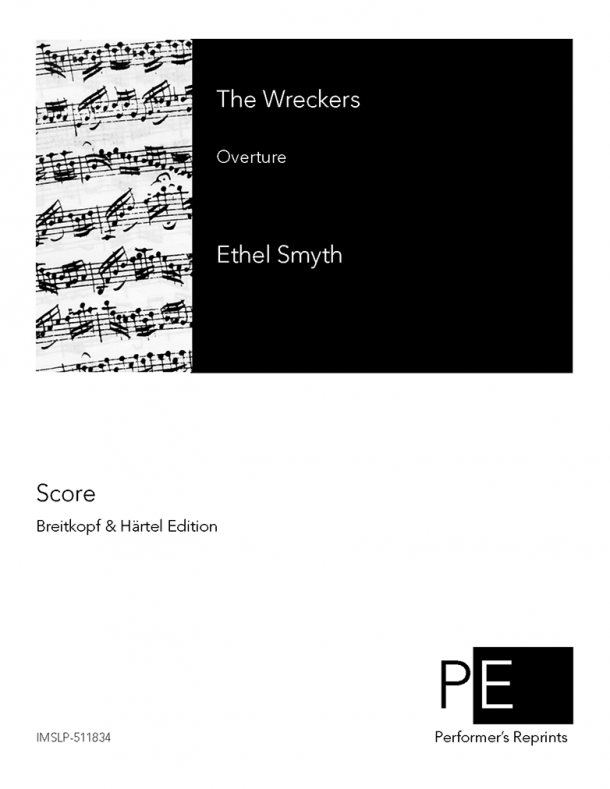Obscure Music Monday: Smyth's The Wreckers Overture
Dame Ethel Mary Smyth DBE (April 22,1858 - May 8, 1944) was an English composer and member of the women's suffrage movement. The fourth of eight children, Smyth showed a keen interested in music as a career. Her father, a major general in the Royal Artillery, was not particularly supportive, though that didn't stop her from pursuing music anyway. Smyth studied privately, and then attended the Leipzig Conservatory. She wrote orchestral and choral works, chamber pieces, operas, and works for piano. Sadly deafness brought her musical career to an end, but between 1919 and 1940, she found herself an author, writing ten successful books.
Smyth wrote an opera in three acts entitled The Wreckers, and today we are looking at the overture to it. The opera is based on Cornish stories that Smyth heard, of villagers luring passing ships to come to the coast, and are then plundered. Of course, it being opera, there's a romantic element to it as well, and Smyth's writing is dense and dramatic, fitting for such a story. The overture opens with a bold theme in the strings that the brass soon join, interspersed by some lighter lines in the winds, and the juxtaposition creates makes for interesting listening. After a calmer nautical-like melody played by two clarinets (and then the English horn and violin,) the overture turns back to its dramatic and colorful roots, as if we are listening to the villagers plundering the ships, and the ensuing fight that comes with it. Towards the end, the victorious theme has hints of a patriotic hymn as it charges to the end, bolder than ever. It's an adventurous and exciting overture, much like the storyline of the opera.
Thankfully there are recordings of this work for you to enjoy!


